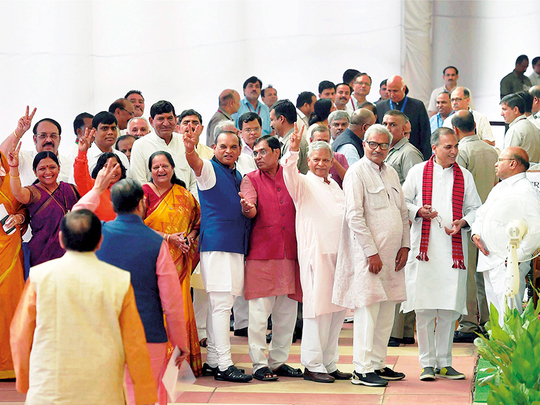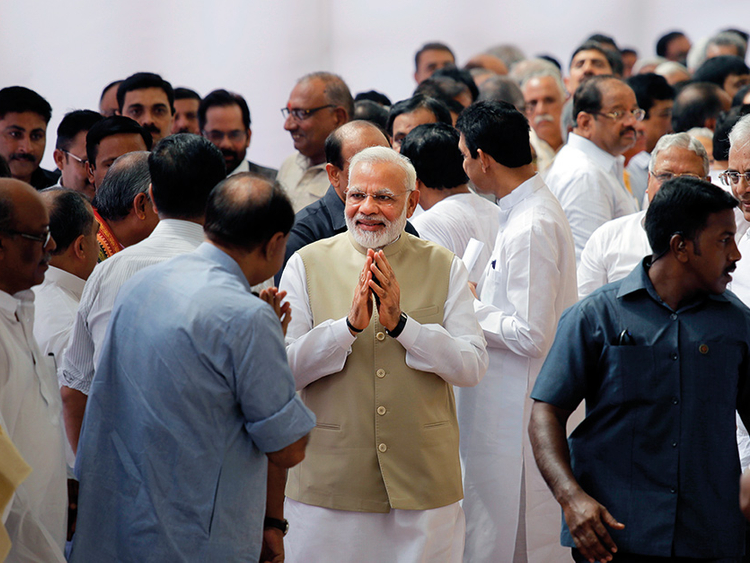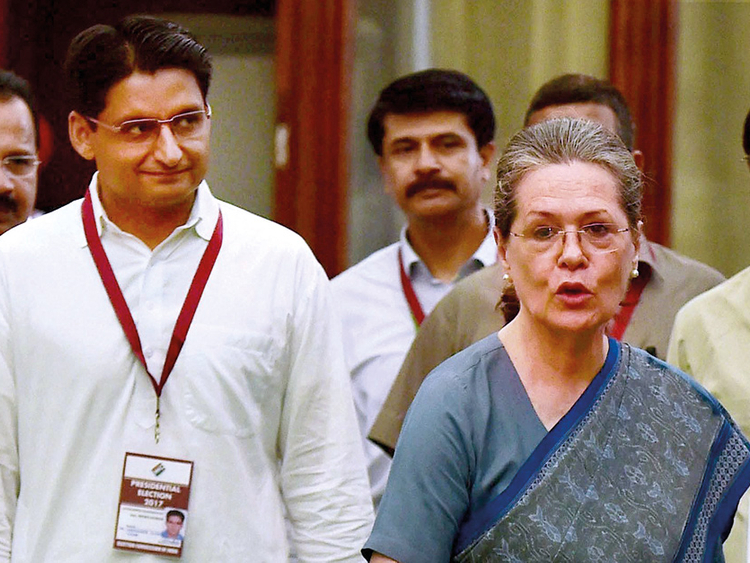
New Delhi: Former Bihar Governor Ram Nath Kovind and former Lok Sabha (Lower House of Parliament) Speaker Meira Kumar faced off on Monday in the elections to pick India’s 14th President.
The voting was held between 10am and 5pm with 4896 legislators across the country — Parliamentarians and legislators — participating in the election. After voting, ballot boxes from the states were flown to Delhi and stored in Room No. 62 in Parliament.
The result will be announced on July 20. The new President will take oath on July 25. If elected, Kovind will be India’s second Dalit (belonging to a lower caste) President after KR Narayanan, who served from 1997 to 2002.
On Monday, Prime Minister Narendra Modi was among the first to vote in Parliament. He congratulated Kovind in advance and described the election as “historic”.
Janata Dal United (U) leader Nitish Kumar broke ranks with Opposition to announce support for Kovind. Besides JD (U), the Bharatiya Janata Party (BJP)-led National Democratic Alliance (NDA) has the support of several regional parties including All India Anna Dravida Munnetra Kazhagam (AIADMK), Telangana Rashtra Samiti, Biju Janata Dal and Telugu Desam Party.
Senior Congress leader Mallikarjun Kharge asked the lawmakers to vote according to their “inner conscience”.
“We believe in democracy and that is why we are contesting. All the voters, including those from Bharatiya Janata Party, should vote as per their conscience,” Kharge told media.
Bahujan Samaj Party (BSP) chief Mayawati said she was happy that both the presidential candidates were Dalits.
“Winning or losing is a different issue. Whoever wins, the good thing is a Scheduled Castes person will be the country’s President. And I think it is a good thing for our Dalit movement,” she said.
The President is elected by an electoral college which comprises all elected members of Parliament and members of the legislative assemblies of all states, as well as of the union territories of Delhi and Puducherry.
The total strength of the electoral college is 10,98,903 votes, with each Parliamentarian carrying a vote value of 708. The vote weight of a member of a state assembly is calculated keeping in mind the population of the state he represents.
A candidate needs 50 per cent-plus votes to win the poll. That translates to 5,49,452 votes. Paper ballots are used in the election. Votes are valid only if a special violet ink pen is used to vote.
Meanwhile, the election for the post of Vice-President is scheduled for August five. Congress-led United Progressive Alliance’s (UPA) Vice-President candidate Gopalkrishna Gandhi will file his nomination papers on Tuesday.
NDA will decide its Vice-President candidate in BJP Parliamentary Board meeting later in the night. According to sources in BJP, Information and Broadcasting Minister M Venkaiah Naidu is the front-runner for the position.














